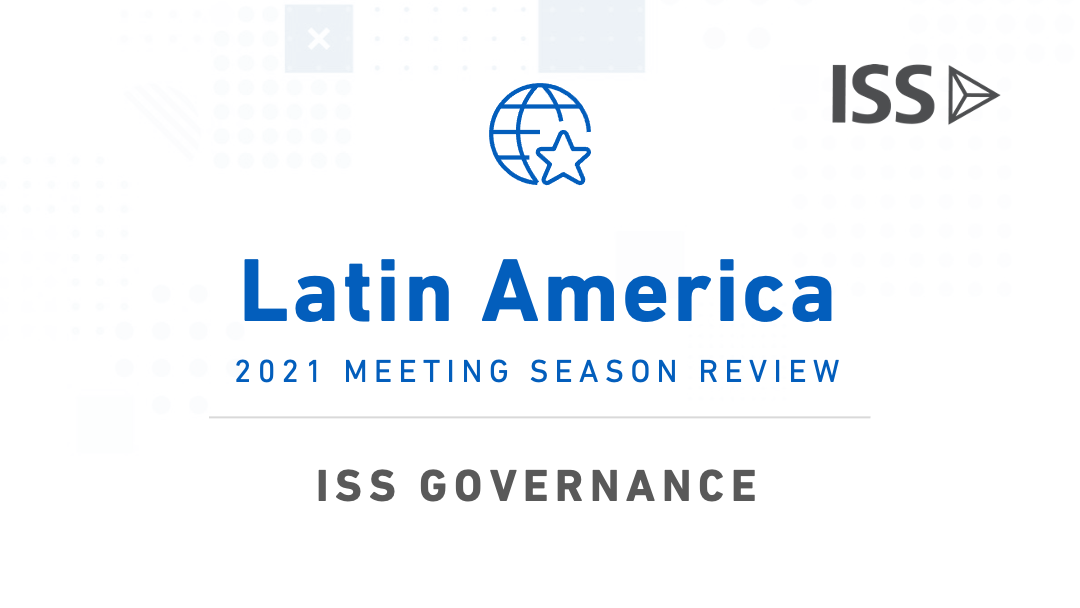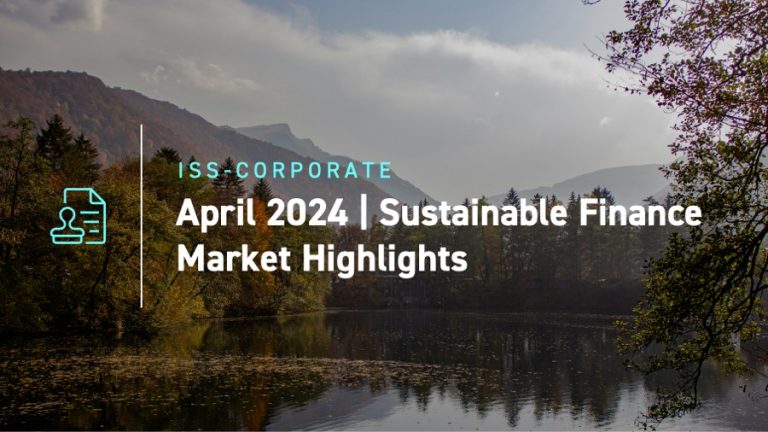Below are key takeaways from ISS’ recently released Latin America 2021 Proxy Season Review. The full report is available to institutional subscribers by logging into ProxyExchange then selecting the Governance Exchange and its Report Center tab and to corporate subscribers by logging into Governance Analytics then selecting the Governance Exchange and the Report Center tab.
KEY TAKEWAYS:
- Virtual Shareholder Meetings have become the rule in most Latin American countries covered by ISS. The exceptions were Mexico, with most AGMs carried out in person; and Chile, with hybrid meetings surpassing the virtual-only ones. Bylaw amendments proposed by companies in Argentina, Brazil, and Peru to incorporate virtual meetings indicate that remote access to shareholder meetings will become a long-lasting trend in the region.
- Disclosure Improves in Colombia, where, during the 2021 proxy season, 56.3 percent of the companies with full board elections disclosed the nominees prior to the shareholder meeting. This development reinforces the improved disclosure in the market since it became a member of the Organization for Economic Cooperation and Development (OECD), in April 2020.
- Lack of Board Gender Diversity continues in the region with women representing between 19.2 percent (Colombia) and 8.8 percent (Peru) of corporate directors in the Latin America markets covered by ISS. Moreover, 113 of the 327 companies (34.6 percent) covered in the region, who held board elections between Jan.- April 2021 (proxy season months), remain with all-male boards. Effective as of Feb. 1, 2022, ISS will start to recommend voting against all-male boards in the region, following the policy change previously announced.
- Board Representation continued to be a hot topic for minority shareholders in Brazil during the 2021 proxy season. At least eight full board elections were carried out under the cumulative vote process, with a greater number of nominees than board seats. In the companies covered by ISS, minority shareholders succeeded in electing a total of 43 directors via the multiple avenues for minority shareholder representation provided by the Brazilian Corporate Law.
- Minority Shareholders Seeking Installation of Fiscal Councils in Brazil, where, out of the 154 fiscal councils installed in companies covered by ISS in 2021, 41 of them appeared to have resulted from requests made by minority shareholders through the remote voting card system, as allowed under current regulations. Minority shareholders elected 123 fiscal council representatives in 2021, and 96 of the installed fiscal councils (or 62.3 percent) had at least one minority shareholders’ representative elected.
- Executive Compensation remains a hot topic in Brazil where one in five companies analyzed proposed material increases in global compensation caps in 2021, almost half of them in the absence of a compelling rationale. All proposals were approved by shareholders, given the prevalence of controlled companies in the country, though a small minority (12.3 percent) received support of less than 70 percent.
If you are not a subscriber, please contact sales@issgovernance.com (for institutional investors) or contactus@isscorporatesolutions.com (for corporations) to learn more about accessing bespoke governance research.
By Ana Luiza Farias, John Reidy, Cassio Muniz, Matt Schafer, Diana de Leon, Rica David, Renata Schmitt




